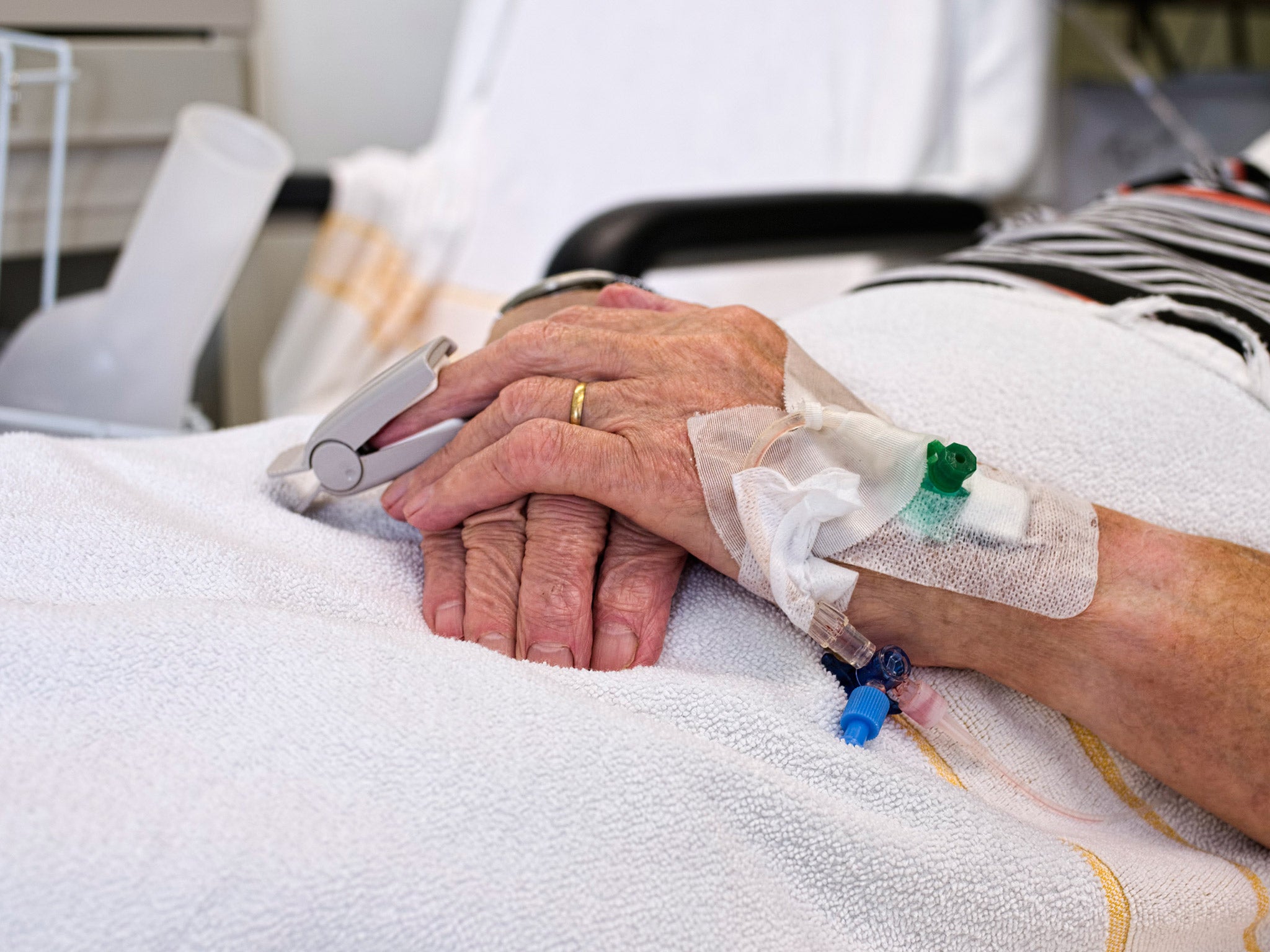Doctors need training on how to tell patients they are dying, report finds
Medics find it difficult to tell patients they are dying, with some 'thrown in at the deep end'

Your support helps us to tell the story
From reproductive rights to climate change to Big Tech, The Independent is on the ground when the story is developing. Whether it's investigating the financials of Elon Musk's pro-Trump PAC or producing our latest documentary, 'The A Word', which shines a light on the American women fighting for reproductive rights, we know how important it is to parse out the facts from the messaging.
At such a critical moment in US history, we need reporters on the ground. Your donation allows us to keep sending journalists to speak to both sides of the story.
The Independent is trusted by Americans across the entire political spectrum. And unlike many other quality news outlets, we choose not to lock Americans out of our reporting and analysis with paywalls. We believe quality journalism should be available to everyone, paid for by those who can afford it.
Your support makes all the difference.Doctors need training on how to tell patients they are dying rather than having to learn “on the job”, a report has found.
Medics find it difficult to tell patients they are dying and also to predict how long somebody will live, with some “thrown in at the deep end”, the study of doctors’ and patients’ views reveals.
Published by the British Medical Association (BMA), the report into end-of-life care said: “Without exception, doctors did not find it easy to discuss dying and death.”
Of 237 doctors interviewed in depth, most said the talk was “always distressing” but could be rewarding.
Some said not all doctors had the confidence to discuss death and not all “had the innate skills to manage such conversations”. One GP said: “Some consultants won’t tell the patient [he or she is terminally ill], partly because they’re afraid what the patient’s reaction will be.”
Dr Ian Wilson, from the BMA, said: “Doctors need the time, support and sufficient training necessary for caring for people at their end of life, and patients must be able to access a high quality of end-of-life care.”
PA
Join our commenting forum
Join thought-provoking conversations, follow other Independent readers and see their replies
Comments